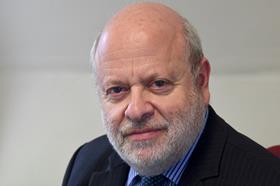We are not the only country whose immigration lawyers have faced threats of violence. Ours were menaced during the riots in the summer of last year. They have also faced hostility from certain media sources, and indeed from the government. The law firm Duncan Lewis had to deal with a violent physical attack in 2020.

In France at the beginning of this year, something similar happened. A far-right media outlet published a special issue on immigration. It contained a series of articles targeting lawyers (and also judges, NGOs, and journalists), describing them as ‘guilty of the immigration invasion’.
A list of sixty lawyers was included, with their names and the court where they practised identified. Lawyers were accused of benefiting from the backlog faced by administrative courts and of using the law to ‘make France bend’. There was false information about the lawyers’ remuneration, and, accompanying the articles, social media posts and videos, further targeting some of the lawyers with names and pictures.
Of course, a series of intimidating comments and appeals to violence followed, including death threats to the lawyers. Several lawyers have been subject to harassment since publication. The French National Bar Council filed a complaint file with the Paris prosecutor's office, and gave its support to the affected lawyers.
In Germany, after a knife attack in the city of Solingen in August 2024 in which three people were killed, various media outlets reported on the lawyer who had represented the suspected attacker in his asylum proceedings a year earlier. A popular tabloid gave readers to understand that the lawyer had allegedly helped thwart the deportation. The lawyer received widespread threats, and a rally organised by the far-right Identitarian Movement was held in front of her office.
In the United States last month, the president – who has taken a special interest in attacking lawyers – issued a memorandum which said that lawyers were helping to fuel ‘rampant fraud and meritless claims’ in the immigration system, and directed the Justice Department to seek sanctions against attorneys for professional misconduct.
These attacks across countries against immigration lawyers raise various issues of professional principle: the right to representation, the independence of the legal profession, the right of a lawyer not to be identified with the interests of the client, and equality of arms between parties.
Read more by Jonathan Goldsmith
We lawyers know the principles very well. For a perfect description of them in very different circumstances, I can recommend a recently published account of the trial of those associated with planning and carrying out the Paris terrorist attacks in November 2015 (Bataclan, café terraces, Stade de France) – ‘V13’ by Emmanuel Carrère - which contains perceptive insights into all concerned with the trial: victims, perpetrators and lawyers. There is a memorable quote from one of the defence lawyers right at the end:
‘We obviously do not defend paedophilia or terrorism, but we are prepared to defend a paedophile or terrorist. They must be defended. That's the law. Of course, I sometimes find it difficult; it's easier to defend a robber I can go out to have a drink with when he gets out than someone who gets his kicks out of watching beheading videos, but you have to distinguish between the person and the act. That's what being a lawyer is all about: doing everything you can to ensure that the accused is judged according to the law and not according to sentiment. And when everyone else has turned their backs, to be the last to reach out a hand.’
There is another interesting quote from the bereaved mother of one of the victims who, after describing her devastation at the death of her daughter on one of the café terraces, turned to the defence lawyers and said:
‘Do your job, do it well. I mean it.’
Of course, V13 was a gigantic criminal trial covering acts of unimaginable brutality. As mentioned, immigration law and its clients are completely different to that in nearly every way. But both the lawyer and the bereaved mother speak truths which apply across the legal system, particularly ours which is dependent on the quality of argument laid before a judge.
In recent years, I have been somewhat swayed by those who say that, in certain civil cases (and I stress civil), lawyers should think twice before acting in a case which damages the climate or intimidates a journalist or deprives the state of substantial taxes. These proponents have persuasive arguments, to which there is no easy answer. I also think that the fact that so many lawyers go out of their way now to promote their own identification with their clients’ causes on social media accounts weakens the argument against such identification.
But the fact remains that lawyers are under powerful attack from strong forces in a number of democratic countries. We must strongly defend their right to act for clients of whom governments or certain political forces disapprove.
Jonathan Goldsmith is Law Society Council member for EU & International, chair of the Law Society’s Policy & Regulatory Affairs Committee and a member of its board. All views expressed are personal and are not made in his capacity as a Law Society Council member, nor on behalf of the Law Society































6 Readers' comments